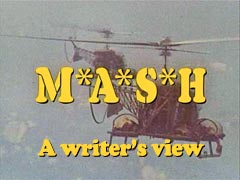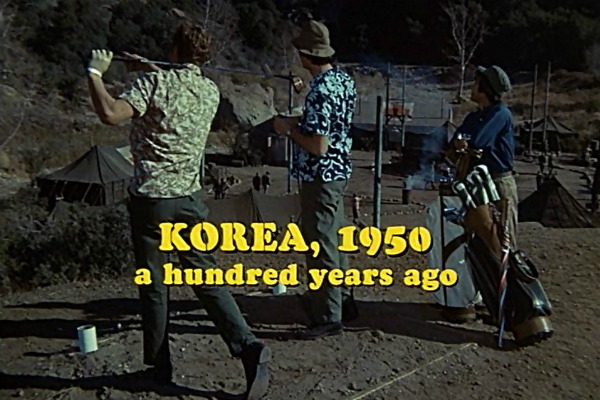M*A*S*H: A writer’s view. #6 in the series.
We have arrived at the fourth season of M*A*S*H. The show has weathered the first storm of cast changes with its audience more or less intact, though the tone is subtly changing. The war is still a horrible and inhuman calamity, beyond the power of any of the characters to prevent or affect; but we can no longer say the same of the Army.
Hitherto, the spirit of the armed forces has been represented by the duo of Frank Burns and ‘Hot Lips’ Houlihan, not so much characters as caricatures, and their futile quest to turn a parcel of draftee doctors into GIs. They were the Enemy, with a capital E; the North Koreans and Chinese were merely a disaster, usually offscreen. But now Colonel Potter, the career man, is in charge, and third on the bill: he is one of Us, and that means that the Regular Army, in toto and categorically, can no longer quite be regarded as Them.
There will be plenty more stories about military stupidity, wrongheaded regulations, gung-ho but incompetent officers; but the emphasis changes. These things that continue to afflict the 4077th are diseases of the military; we begin to lose the sense that the military, as such, is the disease. In this, the show is changing with the times. The Vietnam War reached its final catastrophe in 1975: North Vietnamese troops entered Saigon on April 30, just six weeks after ‘Abyssinia, Henry’ was broadcast. M*A*S*H, the film, was a thinly veiled protest against that war; the TV series continued in the same vein. But there was no longer a war to protest against; if the show had gone on that way, it would have become a museum piece.
As it was, M*A*S*H lost a considerable chunk of its audience. Many fans of the show stopped watching in outrage after Henry Blake was killed; the show dropped out of the top ten in the Nielsen ratings the following season, though not out of the top twenty. But the new characters, Potter and Hunnicutt, quickly won over the remaining viewers, and the fourth season produced a new flowering of technical excellence.
This was the last year with Larry Gelbart and Gene Reynolds in charge (now credited as co-producers). They continued to refresh the pool of writing talent, in part, by tapping their long-time connections in the industry. One of the new writers was Rick Mittleman, who received his first and, alas, only M*A*S*H credit for an episode called ‘Hey, Doc’. [Read more…]









Recent Comments